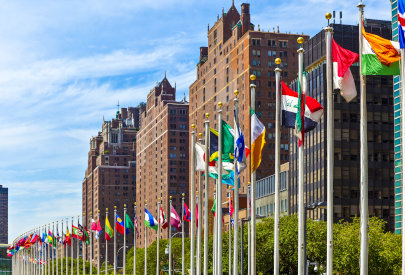The United Nations Convention against Corruption (UNCAC) is the only legally binding universal anti-corruption instrument, which has been ratified by 189 parties.
Every two years, the parties to the Convention meet to review the implementation of the Convention and to discuss how States can better tackle corruption.
The ninth session of the Conference of the States Parties to the United Nations Convention against Corruption was held in Sharm El-Sheikh, Egypt from 13-17 December 2021.
Outcomes of the ninth session
The ninth session concluded with the adoption of the Sharm El-Sheikh Declaration as well as other key resolutions.
The Sharm el-Sheikh Declaration
The Sharm el-Sheikh Declaration recognises that there are increased risks of corruption presented by urgent economic and health relief spending. The Declaration calls for States parties to collect best practices and challenges, and develop guidelines to strengthen cooperation to prevent, identify, investigate and prosecute corruption during times of emergencies and crisis response and recovery.
“The Sharm el-Sheikh Declaration on fighting corruption in times of crisis will inform our recovery from the pandemic with integrity, and will help countries be ready for the emergencies of tomorrow,” said the Executive Director of the UN Office on Drugs and Crime, Ghada Waly, in her closing remarks. “As 2021 with all its challenges comes to an end, with many important anti-corruption commitments made during this landmark year, let us agree that 2022 will be the year of action. Let us keep our promises to people and youth, letting no one down, and leaving no one behind.”
Other resolutions
Other resolutions adopted at the session address key issues such as:
- Beneficial ownership in asset recovery.
- Regional and international cooperation.
- Education and youth empowerment.
- Strengthening cooperation between supreme audit institutions and anti-corruption authorities.
Requirements of States under the Convention
Under the Convention, States are legally obliged to:
- Criminalise corruption – including bribery, embezzlement, money laundering and trading in influence.
- Prevent corruption – includes the establishment of anti-corruption bodies and codes of conduct for public officials.
- Promote international cooperation – providing mutual legal assistance in investigations, prosecutions and judicial proceedings.
- Recover and return stolen assets – holding corrupt officials accountable and helping developing countries to progress.
- Improve technical assistance and information exchange – in both the private and public sectors.
Implementation Review Mechanism
Through the Convention’s Implementation Review Mechanism, States parties participate in a peer review process which assesses how effectively they are fulfilling their obligations under the Convention. The aim is to identify best practices and key challenges relating to national anti-corruption laws, processes and institutional frameworks.
A State is reviewed by one State party from the same region and another State party from anywhere in the world. The review includes recommendations and best practices for the State to adopt.
The reviewed State then uses this feedback to strengthen their national anti-corruption efforts and better implement the provisions of the Convention.
Significant change being generated
The Convention is having a real impact on the global fight against corruption, facilitated through the Implementation Review Mechanism.
The reviews have helped States take steps to strengthen their anti-corruption frameworks, including:
- Creating new, independent anti-corruption authorities.
- Engaging the private sector and civil society.
- Signing new mutual legal assistance treaties.
- Introducing new criminal offences such as for money laundering, trading in influence and obstruction of justice.
- Setting up regional platforms to address technical assistance needs.
This momentum also acts as a powerful motivator for other States to ratify or accede to the Convention and join the global fight against corruption.
Key takeaways
The United Nations Convention against Corruption and its Implementation Review Mechanism are helping to strengthen national anti-corruption frameworks, thereby strengthening the global fight against corruption. At the ninth session of the Conference of the States Parties to the Convention, the Sharm el-Sheikh Declaration was adopted to strengthen the fight against corruption in times of crisis.



